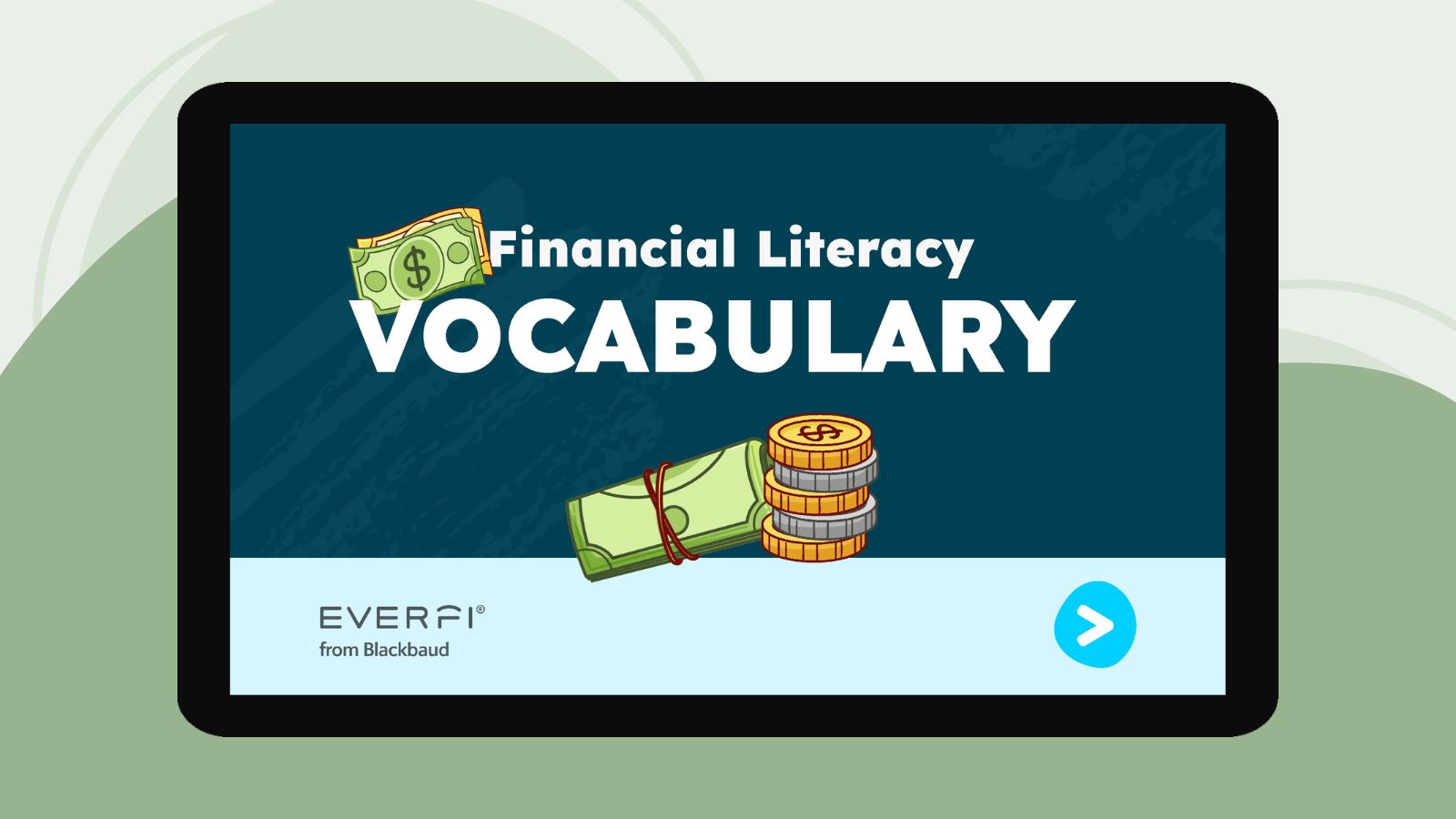It can be difficult for students—and even some adults—to feel confident in their understanding of finances. After all, money can be a source of stability, but it can also be anxiety-inducing when a person doesn’t feel financially literate or in control. But it doesn’t have to be that way! These financial literacy vocabulary words along with our free Jeopardy-style game are the perfect stepping stones into any financial literacy lesson.
By teaching students about how money works early on, they’re more likely to mature into financially secure and responsible adults. That’s why we’re here to help you break down essential financial vocabulary into digestible pieces—and then make it fun with a game!
Financial Literacy Vocabulary Terms
This list of terms can be helpful for students to get a handle on words they might hear in real-life scenarios or in upcoming lessons. They’re all included in our free Jeopardy-style game!
Basics
- Income: Money you earn from working or from things you own that make money, like a business.
- Expense: Money you spend on things you need or want, like bills or snacks.
- Interest: Extra money you pay when you borrow money, or money you earn from saving it, usually shown as a percentage.
- Debt: Money you owe because you borrowed it and need to pay it back.
- Credit card: A payment type that creates a loan, meaning you have to pay back the purchase amount plus interest at a later time.
Banking
- Checking account: A bank account that allows easy access to funds for everyday transactions.
- Savings account: A bank account that earns interest over time and is typically used for storing money that you’re not going to use right away.
- Overdraft: Occurs when money is withdrawn from a bank account and there are not sufficient funds to cover it.
- Direct deposit: The electronic transfer of a payment, often a paycheck, directly from the payer’s account to the recipient’s account.
- Loan: Money that you borrow and have to pay back later, usually with extra money on top called interest. An example of this is a mortgage.
Investing
- Stock: A small unit of ownership of a company; when the company makes or loses money, you also can make or lose money.
- Dividend: The name for a distribution of profits by a company to individuals who own that company’s stock.
- Portfolio: A collection of all the different investments (like stocks and bonds) that someone owns.
- Bond: A way to lend money to a company or the government, who promises to pay you back with some extra money later. This is typically a low-risk investment.
- Mutual fund: A group of different investments that people put their money into together. Experts manage it to help the money grow, and it is considered to be less risky than investing in a singular stock.
Taxes
- Tax: Money that the government charges people to pay for things like schools, roads, and public services.
- Income tax: A type of tax that you pay on the money you earn from working.
- Tax deduction: An expense that can lower the amount of income that you have to pay taxes on, so you pay less in taxes.
- Tax credit: An amount of money that is subtracted from the amount you owe when you file your taxes.
- Withholding: Money that is deducted from your paycheck before you receive it to automatically pay for things like taxes.
Get Our Free Jeopardy-Style Game!
Your students will enjoy playing this Jeopardy-style game where they can work together to guess the vocabulary terms from provided clues. It’s a great kickoff to any type of financial literacy learning to get some basic understanding of terminology.
How To Use the Game
This financial literacy vocabulary game is available on Google Slides and is perfect for classroom use!
- Divide your class into teams to compete in the Jeopardy-style financial literacy game.
- The teams will take turns selecting categories with a point value and then work together to choose the correct term that matches the clue. Set a time limit to give their response if needed.
- Use the optional word bank for each category to give students a hint. Or ditch the word bank to make it more challenging!
- Add up points for correctly answered questions on the board, and be sure to cross out the categories that were already used.

